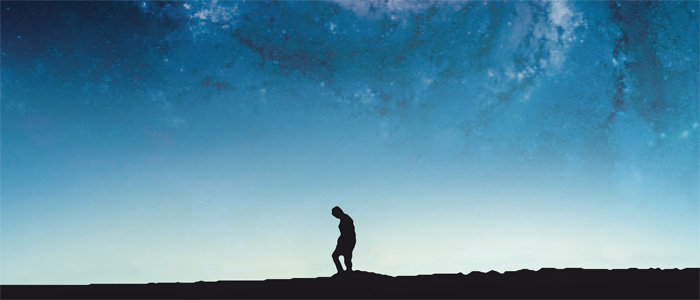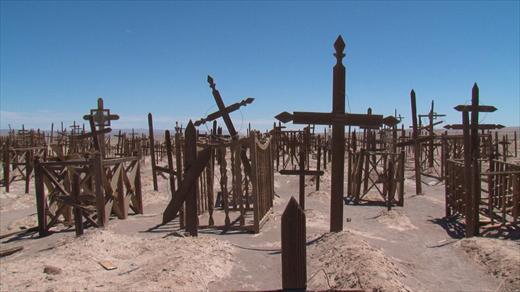
Nostalgia For the Light by Patricio Guzman 90 minutes 2010
How much better the world appears when one can look over the shoulder of a fine cinematographer. Beauty lies waiting to be uncovered in every corner, it’s just a question of time, the time it takes to set up a shot, to establish a position, a frame from which to begin noticing where the light is falling. Four minutes float past without a word spoken, right off the top of the movie, and when at last language enters the room, the speaker is nowhere to be seen, instead, a series of glowing nostalgia shots offer us views of home as it might have been, pressed under glass like specimens.
“The astronomers created an enormous telescope to bring two seemingly incompatible things closer: the origins of everything and the past of everything we are today.”
Celestial seasons mingle with petroglyph journeys carved out into desert rocks. Why Chile I wonder? Is it true, as the old world voice-over poetically intones, that these skies were kissed by the Gods? The dry climate appears ideal for finding traces of the earth’s past, while the skies are clear enough to grant views of light so distant that these stars have already died before they reach the eye of the telescope.
Beneath the cinematographer’s glassy stare, the spoons dance, the train flows through the Atacama desert, the Indigeneous worker graves lie windswept and abandoned on the high desert plain, and the concentration camp victims of Pinochet are gilded in star dust. Women sift through the desert sand, looking for remains of those they have lost. Like all beauty, this one is heartbreaking, sometimes unbearable, even at the stately distances this camera is most comfortable with.
“What did you find of your brother?”
“A foot. It was still in his shoe. Some of his teeth. I found part of his forehead, his nose, nearly all of the left side of his skull. The bit behind the ear with a bullet mark. The bullet came out here.”
This is the terrible poetry of memory. Filled always with necessary returns, these survivors speak out against the repressions of Chile’s feared dictator and the police that are always ready, in country after country, to say yes to power. Thousand were punished, kidnapped and tortured and buried in mass graves here in the desert. Many of these graves were dug up by the regime and bulldozed into the ocean, but these excavations occasionally left spillage, evidence and grief memorials for the ones who escaped the death squads. These sunburnt survivors insist on speaking their unbearable truths, looking at what can’t be looked at. They have dedicated their lives to searching, and bringing their evidence forward so that the magicians of cinema will offer one last conjuring trick, and let these memories live.
